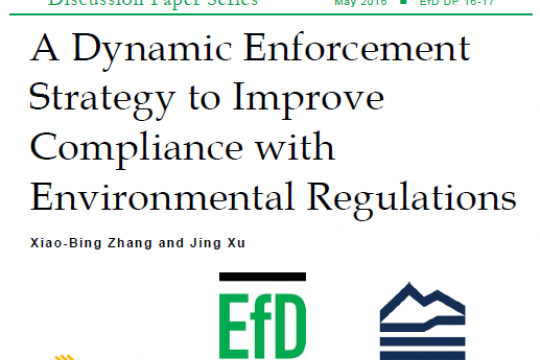This paper develops a stochastic dynamic programming model to investigate a type of dynamic
enforcement strategy where the penalties for violations of environmental regulations are based on not only the current level of violations but also the firms’ past noncompliance records. The results show that firms’ optimal level of noncompliance would be a decreasing function of their accumulated
noncompliance record and that a more stringent enforcement strategy can reduce the expected fines due to the reduced violations. Comparisons with the repeated static enforcement strategy indicate that the dynamic enforcement strategy can be superior in terms of reducing both violations and enforcement efforts.
EfD Authors
Files and links
Country
Sustainable Development Goals

